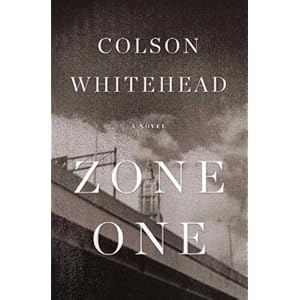The list this week is the Top 10 Books on your To Be Read Pile for this fall. My TBR list isn't a nice neat stack with any sort of strict order to it, so who knows if I'll actually read any of these books this fall or if I'll run off and read whatever strikes my fancy at a given moment... but these are books that I absolutely, positively (Absotively! in the words of Grahame Coats from Anansi Boys) want to read in the near future.
1. Tolstoy and the Purple Chair by Nina Sankovitch. I love the idea of this book-- reading as therapy that deepens our understanding and appreciation of our connection to the world around us.

2. Graceland by Chris Abani I first came across Abani's work in a graduate seminar on West African fiction and have been absolutely hooked ever since. He's an incredible man who has been through some horrible things but who still manages to love, laugh, and forgive. If you haven't already, please please please check out his TED Talk! Author-crush aside... I'm excited to read Graceland because it deals with the real issues of globalization and cultural identity from a child's perspective. Also, the child protagonist is a precocious Elvis Presley impersonator... What's not to love there?
3. The Marriage Plot by Geoffrey Eugenides This one is pretty straightforward. Middlesex= Incredible, The Marriage Plot= Eugenides next book, Ali = sooooo pumped to read.
4. A Visit From the Goon Squad by Jennifer Egan I'm a bit behind the crowd in reading this one but since it's received such strong reviews I think I'm obligated to give it a try. I'm also drawn to the term "Goon Squad." Why don't we use that any more?
5. American Gods/Fragile Things by Neil Gaiman I read my first Gaiman last week (review is here) and really enjoyed it. American Gods seems to be the big kahuna of his work so I plan to start there and then work my way up to his newer short fictions
6. The Book Thief by Marcus Zusak *What? You haven't read this?! And you call yourself a bookie?!* I know, I know, there is no excuse here. I have it queued up in my Kindle ready to go as soon as I can find the motivation to start

7. Zone One by Colson Whitehead Due out in mid-October. If you haven't read Whitehead's John Henry Days or The Intuitionist I highly recommend you do! JHD is one of my all time favorites. Zone One, Whitehead's latest book, is a it of a departure from his earlier work-- it's a post-apocalyptic zombie novel, for one thing-- but I've heard that his dense, playful approach to language is the same so I'm looking forward to seeing what he can do with the horror genre.
8. The Cat's Table by Michael Ondaatje I had the incredible privilege of sitting down with Ondaatje last spring to talk about his poetry, his upcoming work, and (oddly enough) his connection to the African American author and social activist James Baldwin. He mentioned that the protagonist of his latest novel was one of his favorites to write because the character-- a young boy whose adventures are limited to the decks of a small ship travelling from Colombo to London in the 1950s-- relies so heavily on his own imagination and childlike logic to make sense of the world around him. Ondaatje is a poet at heart so I'm looking forward to the imagery and lyricism that characterizes much of his work.
9. Woman at Point Zero by Nawal El Saadawi A lecturer at my school gave a great talk last fall about the symbolic use of traditional Islamic dress in recent Middle Eastern fiction and it occurred to me that I've never really engaged with authors of the Islamic faith. I went up to the speaker afterwards and asked for some recommendations and she immediately suggested I check out El Saadawi. I picked up the book that afternoon but it has been languishing on my shelf ever since.
10. The Buddha in the Attic by Julie Otsuka I taught Otsuka's previous book, When the Emperor Was Divine, to some of my multicultural lit classes last spring and they (and I!) were enthralled by the narrative voice and the heart-rendingly powerful story. Buddha continues that tale of Japanese mail-order brides sent to America in the 1920s by laying out the challenging, but poetically beautiful struggles those women undergo as they settle into new lives in a new country.
What are you excited about this fall? Anything I need to add to my list?
P.S. How had I not heard about this?! MetaMaus by Art Spiegelman. A look inside the creative process behind the Maus graphic novels




